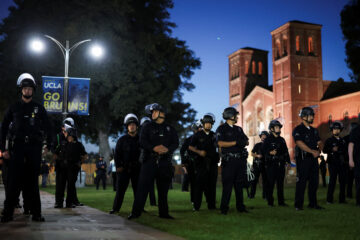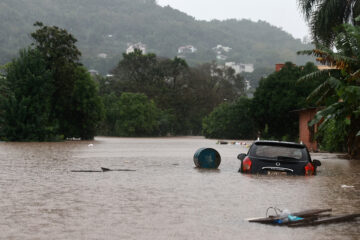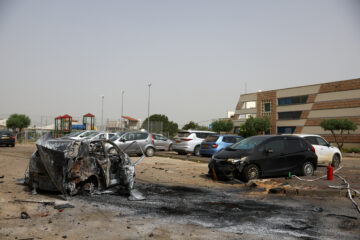Asia PacificEmailEuropeFeatures/Views/AnalysisHightlightsMiddle EastPoliticsReadUS & CanadaWorld News
World protests as Obama prepares to strike Syria
Protesters worldwide are taking to the streets — and to social media — to express their varied views on a possible U.S.-led attack on Syria.
Opponents of U.S. military intervention in Syria have taken to the streets in protest.
Anti-war demonstrations were held Saturday outside the White House in Washington and in other countries including France, Germany, Britain, Australia, Jordan and Turkey, a day after the U.S. government presented its report on the Syrian government\’s alleged use of chemical weapons against civilians. There also were demonstrations in support of military action against Syria.
Syrian allies expressed support for the government of President Bashar al-Assad.
US President Barack Obama said he has decided to take military action against Syria, but will seek authorisation from Congress before he does.
Obama said on Saturday that the US had presented a "powerful case" linking the government of Syrian President Bashar al-Assad to an alleged chemical weapons attack in the Damascus suburbs last week.
"It is a danger to our national security," he said, "that risks making a mockery of the global prohibition on the use of chemical weapons".
"I\’m confident we can hold the Assad regime accountable for their use of chemical weapons and deter this kind of behaviour and degrade their capacity to carry it out," he said.
The president made no mention of when he will seek authorisation from Congress, but lawmakers are scheduled to return from recess on September 9.
But what is unclear is what action he would take if Congress votes against involvement.
On Thursday, British MPs defeated a government motion to take part in any military action in Syria.
After the president\’s address UK Prime Minister David Cameron tweeted: "I understand and support Barack Obama\’s position".
Obama did not speak to Mr Cameron before his statement but did call President Hollande of France, the White House said.
France has also backed military action in Syria. The French parliament is due to reconvene next week.
France will wait for discussions in the US Congress and French parliament before making a decision on military intervention, a French official told the Associated Press.
There were some initial critical reactions from lawmakers, notably Senators John McCain and Lindsey Graham, two longtime Syria hawks who said they would not support a military strike that did not try to topple Assad.
“We cannot in good conscience support isolated military strikes in Syria that are not part of an overall strategy that can change the momentum on the battlefield," they said in a statement.
Russian President Vladimir Putin said it would be "utter nonsense" for the Syrian government to use chemical weapons when it was winning the war against rebels. He urged the United States to present any evidence of chemical weapons use in Syria to the United Nations.
An Iranian delegation visited Damascus Saturday to consult with the Syrian government, following a similar visit Friday by an official delegation from Yemen.
But some world leaders also expressed support for military action. British Prime Minister David Cameron sought but failed to get parliament\’s approval for Britain\’s participation in a strike on Syria, but he said he supports the U.S. president\’s decision not to let the Syrian government go unpunished for war crimes.
Australian Foreign Minister Bob Carr expressed confidence that the Obama administration has carefully weighed an appropriate response.
Turkish Prime Minister Recep Tayyip Erdogan called for a volunteer coalition to stop the killings in Syria. In a televised speech Saturday, he also criticized Russia and China for blocking a U.N. Security Council resolution on Syria.
The Syrian government has denied using chemical weapons and is accusing the opposition of using them.
Syrian President Bashar al-Assad has said his country will defend itself against any Western "aggression".
More than 100,000 people have died since the conflict erupted in March 2011 and two million have become refugees, half of them children, according to the United Nations.
Source: Agencies
[do_widget_area inner_adsbar]









